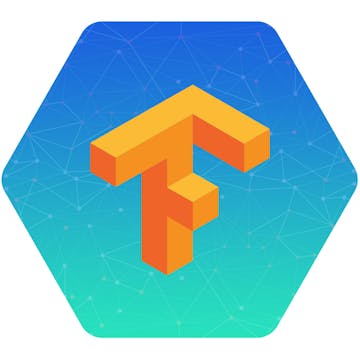
En este curso acelerado a pedido de una semana, los participantes recibirán una introducción práctica sobre cómo diseñar y compilar modelos de aprendizaje automático en Google Cloud Platform. Mediante una serie de presentaciones, demostraciones y labs prácticos, los participantes conocerán conceptos de aprendizaje automático (AA) y TensorFlow, y adquirirán habilidades prácticas para desarrollar, evaluar y producir modelos de AA.
OBJETIVOS
En este curso, los participantes adquirirán las siguientes habilidades:
● Identificar casos prácticos de aprendizaje automático
● Compilar un modelo de AA con TensorFlow
● Compilar...
Read more
Good to know
Save this course
Reviews summary
Theoretical, practical tensorflow
Activities
Read 'Hands-On Machine Learning with Scikit-Learn, Keras, and TensorFlow'
Show steps
Read this book to enhance your understanding of machine learning concepts and techniques used in this course.
View
Hands-On Machine Learning with Scikit-Learn,...
on Amazon
Show steps
-
Read the relevant chapters
Practice TensorFlow exercises
Show steps
Practice using TensorFlow to develop and train machine learning models.
Browse courses on
TensorFlow
Show steps
-
Complete the TensorFlow tutorials
-
Work through the TensorFlow exercises
Practice data preprocessing and feature engineering
Show steps
Practice data preprocessing and feature engineering to improve the accuracy of your machine learning models.
Browse courses on
Data Preprocessing
Show steps
-
Complete the data preprocessing and feature engineering exercises
Five other activities
Expand to see all activities and additional details
Show all eight activities
Practice using advanced machine learning algorithms
Show steps
Practice using advanced machine learning algorithms, such as support vector machines and decision trees, to enhance the accuracy of your models.
Browse courses on
Machine Learning Algorithms
Show steps
-
Complete the advanced machine learning algorithms exercises
Create a machine learning model with Cloud ML
Show steps
Follow tutorials to build and deploy a machine learning model using Cloud ML.
Show steps
-
Follow the Cloud ML tutorial
-
Deploy your model to the cloud
Create a data pipeline using Google Cloud Dataflow
Show steps
Follow tutorials to create a data pipeline using Google Cloud Dataflow to process and transform data for machine learning.
Browse courses on
Google Cloud Dataflow
Show steps
-
Follow the Google Cloud Dataflow tutorial
-
Deploy your data pipeline to the cloud
Use Google Cloud AI Platform Notebooks
Show steps
Follow tutorials to use Google Cloud AI Platform Notebooks to develop and deploy machine learning models.
Browse courses on
Jupyter Notebooks
Show steps
-
Follow the Google Cloud AI Platform Notebooks tutorial
-
Deploy your machine learning model
Develop a machine learning project
Show steps
Apply the concepts and techniques learned in the course to a real-world machine learning project.
Browse courses on
Machine Learning
Show steps
-
Define the problem statement
-
Collect and prepare data
-
Train and evaluate models
-
Deploy the model
Read 'Hands-On Machine Learning with Scikit-Learn, Keras, and TensorFlow'
Show steps
Read this book to enhance your understanding of machine learning concepts and techniques used in this course.
View
Hands-On Machine Learning with Scikit-Learn,...
on Amazon
Show steps
- Read the relevant chapters
Practice TensorFlow exercises
Show steps
Practice using TensorFlow to develop and train machine learning models.
Browse courses on
TensorFlow
Show steps
- Complete the TensorFlow tutorials
- Work through the TensorFlow exercises
Practice data preprocessing and feature engineering
Show steps
Practice data preprocessing and feature engineering to improve the accuracy of your machine learning models.
Browse courses on
Data Preprocessing
Show steps
- Complete the data preprocessing and feature engineering exercises
Practice using advanced machine learning algorithms
Show steps
Practice using advanced machine learning algorithms, such as support vector machines and decision trees, to enhance the accuracy of your models.
Browse courses on
Machine Learning Algorithms
Show steps
- Complete the advanced machine learning algorithms exercises
Create a machine learning model with Cloud ML
Show steps
Follow tutorials to build and deploy a machine learning model using Cloud ML.
Show steps
- Follow the Cloud ML tutorial
- Deploy your model to the cloud
Create a data pipeline using Google Cloud Dataflow
Show steps
Follow tutorials to create a data pipeline using Google Cloud Dataflow to process and transform data for machine learning.
Browse courses on
Google Cloud Dataflow
Show steps
- Follow the Google Cloud Dataflow tutorial
- Deploy your data pipeline to the cloud
Use Google Cloud AI Platform Notebooks
Show steps
Follow tutorials to use Google Cloud AI Platform Notebooks to develop and deploy machine learning models.
Browse courses on
Jupyter Notebooks
Show steps
- Follow the Google Cloud AI Platform Notebooks tutorial
- Deploy your machine learning model
Develop a machine learning project
Show steps
Apply the concepts and techniques learned in the course to a real-world machine learning project.
Browse courses on
Machine Learning
Show steps
- Define the problem statement
- Collect and prepare data
- Train and evaluate models
- Deploy the model
Career center
Machine Learning Engineer
Data Scientist
Software Engineer
Data Analyst
Quantitative Analyst
Research Scientist
Product Manager
Business Analyst
Consultant
Technical Writer
Teacher
Librarian
Customer Service Representative
Salesperson
Marketing Manager
Reading list
Share
Similar courses
OpenCourser helps millions of learners each year. People visit us to learn workspace skills, ace their exams, and nurture their curiosity.
Our extensive catalog contains over 50,000 courses and twice as many books. Browse by search, by topic, or even by career interests. We'll match you to the right resources quickly.
Find this site helpful? Tell a friend about us.
We're supported by our community of learners. When you purchase or subscribe to courses and programs or purchase books, we may earn a commission from our partners.
Your purchases help us maintain our catalog and keep our servers humming without ads.
Thank you for supporting OpenCourser.



